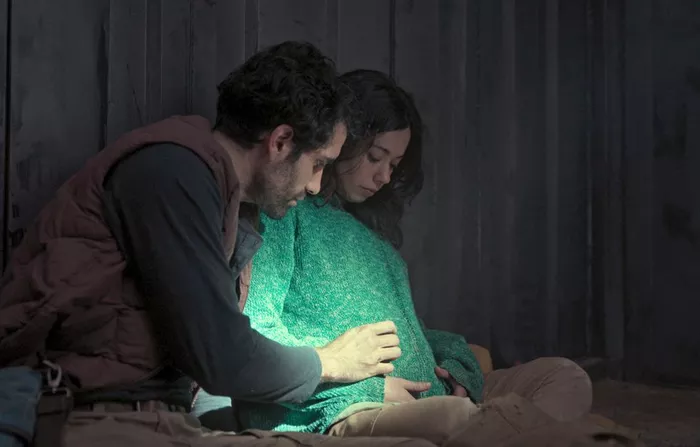The recently released thriller, ‘Nowhere’, has left audiences captivated and bewildered with its enigmatic storyline and cryptic characters. Among the many enigmas the film presents, the fate of Nico, a central character, remains shrouded in ambiguity, leaving viewers grappling with various theories. Although the movie’s ending provides little explicit resolution regarding Nico’s destiny, careful analysis of the events leading up to the final scene suggests a tragic outcome for the character. Throughout the narrative, it becomes increasingly evident that the oppressive circumstances Nico faces on the ship ultimately hint at an unfortunate demise. While the director deliberately maintains an air of uncertainty around Nico’s ultimate fate, the subtle cues and harrowing sequences strongly imply a bleak conclusion to his journey. The haunting ambiguity surrounding Nico’s fate resonates long after the movie’s credits roll, leaving a lasting impression on audiences and prompting discussions about the character’s symbolic significance within the broader thematic framework of the film.
The perplexing backdrop against which the story unfolds adds layers of complexity to the characters’ motives and actions. A crucial aspect of the storyline involves Nico and Mia’s frantic attempt to escape Spain for the shores of Ireland. Delving deeper into the film’s narrative, it becomes apparent that the couple’s desperate flight is catalyzed by the rise of a brutal totalitarian regime in Spain. This despotic regime, characterized by its ruthless targeting of pregnant women and children, represents a dystopian reality that resonates with contemporary concerns about political extremism and human rights violations. By portraying a society where the vulnerable are systematically oppressed, the film not only heightens the suspense but also reflects the anxieties of our own world, underscoring the fragility of societal structures in the face of authoritarianism. The palpable sense of urgency and danger that permeates the scenes depicting the couple’s escape underscores the gravity of their predicament and the precarious nature of their quest for freedom.
Mia, the female protagonist, emerges as a character whose resilience and determination are central to the film’s progression. In one of the most intriguing and polarizing scenes, Mia’s decision to consume her own placenta after giving birth raises both eyebrows and questions among viewers. The act, which initially appears grotesque and unconventional, is contextualized within the broader framework of the character’s survival instincts and the primal need for sustenance in the face of dire circumstances. While the practice of consuming the placenta, known as placentophagy, is not entirely uncommon among certain cultures and communities, the film underscores the potential health risks associated with the consumption of raw placenta. Mia’s action serves as a stark reminder of the delicate balance between tradition and risk, shedding light on the intricacies of human behavior under extreme duress. The visceral portrayal of Mia’s inner turmoil and her unwavering commitment to ensuring her child’s survival amidst the unforgiving environment adds layers of emotional depth to the character, resonating with audiences on a profound and visceral level.
Amidst the riveting plot and the intricate character dynamics, the film maintains a poignant theme that revolves around the resilience of the human spirit in the face of insurmountable challenges. Mia’s unwavering determination to protect her child and seek refuge despite the formidable obstacles in her path encapsulates the enduring spirit of maternal instinct and the unyielding pursuit of hope in the darkest of times. Furthermore, the subtle portrayal of societal decay and the erosion of fundamental freedoms within the narrative serve as a cautionary tale, prompting audiences to contemplate the consequences of unchecked power and the importance of safeguarding individual liberties in the face of authoritarian threats. The film’s exploration of the human capacity for resilience and the portrayal of unwavering hope amidst adversity strike a universal chord, inviting viewers to reflect on the strength of the human spirit and the enduring power of hope in the face of seemingly insurmountable odds.
In essence, ‘Nowhere’ transcends the confines of conventional storytelling, offering a profound exploration of human resilience, societal decay, and the tumultuous journey of survival in the face of oppression. While the film intentionally leaves certain narrative threads open to interpretation, the nuanced portrayal of its characters and the intricate layers of its storyline leave an indelible mark on the audience’s psyche. As viewers grapple with the ambiguity surrounding Nico’s fate and reflect on the profound implications of Mia’s harrowing journey, ‘Nowhere’ stands as a testament to the enduring power of storytelling to provoke introspection and evoke visceral emotions in its wake. The film’s thought-provoking narrative and its poignant exploration of universal themes resonate with audiences long after the credits have rolled, reaffirming the transformative potential of cinema as a medium for social commentary and emotional engagement.

